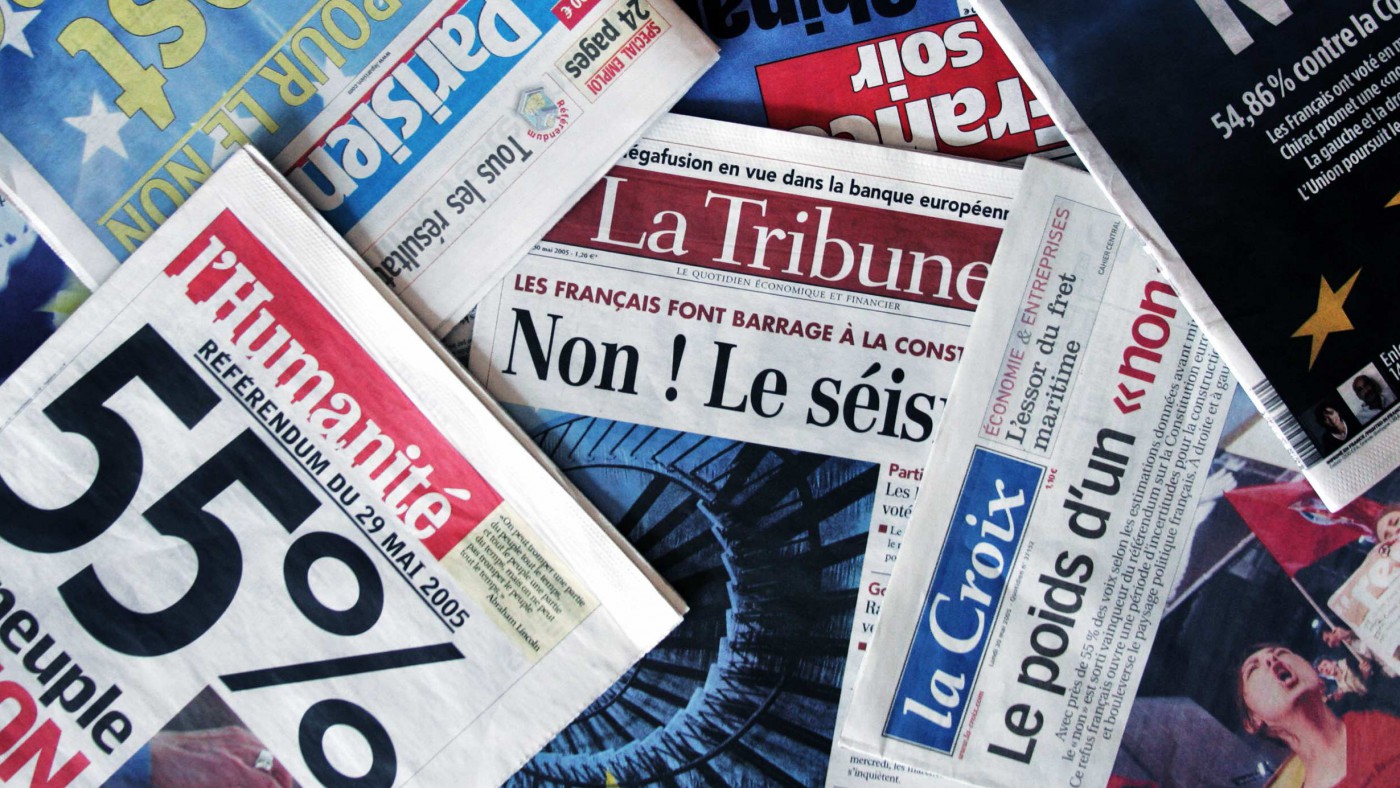Exactly ten years ago, the people of France voted, by 55 to 45 per cent, to reject the European Constitution. Their “Non” was followed, three days later, by an even more emphatic Dutch “Nee”: 62 to 38 per cent.
Across Europe, democrats let out a sigh of relief. It seemed that the federalist project had been definitively halted. For half a century, European integration had been pursued by the élites – by diplomats and bureaucrats and lobbyists and bankers and politicians. Now, ordinary voters had finally been given their say, and they could hardly have made themselves clearer.
Ten years on, what has happened? Every single measure – every single measure – proposed by the European Constitution has been implemented: a European President, an EU foreign minister and diplomatic corps, legal personality and treaty-making powers for the EU, a “passerelle” clause to allow further integration without needing new treaties, more majority voting, fewer national vetoes, the whole hog – totus porcus.
As I lament in the above video clip, made to mark today’s anniversary, the European project is like some undead creature. Ram a stake into its heart, and it plucks it out and keeps going. Pepper its rotting flesh with silver bullets and it continues to drag itself malodorously forward. Nothing is allowed to stand in its way, neither the rules nor the will of the people. As Jean-Claude Juncker put it the other day, “There can be no democratic choice against the European Treaties”.
Which puts the coming British renegotiation into perspective. Whatever deal is notionally agreed, as long as the legal supremacy of the EU institutions remains, it will be interpreted by people whose commitment to deeper integration overrides whatever belief they have in freedom, democracy or the rule of law. David Cameron may come back with opt-outs and special protocols. They may be drawn up in the clearest language lawyers can devise. Yet, in the last analysis, they won’t be allowed to stand in the way of what the French call the “finalité politique”.
Perhaps the most Francophile MP ever to have sat in the House of Commons was the Conservative, Harold Nicolson. When France was occupied in 1940, he was plunged into black despair. Indeed, he was far more upset by the fall of France than by the fall of Britain, then widely assumed to be imminent. European civilisation, he lamented, could not exist unless France were herself.
Following the Liberation, he took the first ferry to free French soil. As he disembarked at Dieppe, he leant down to touch the ground. “Monsieur a laissé tomber quelque chose?” asked a porter. “Non,” replied Nicolson. “J’ai retrouvé quelque chose”.
That was how I felt ten years ago today. I should have known better.


